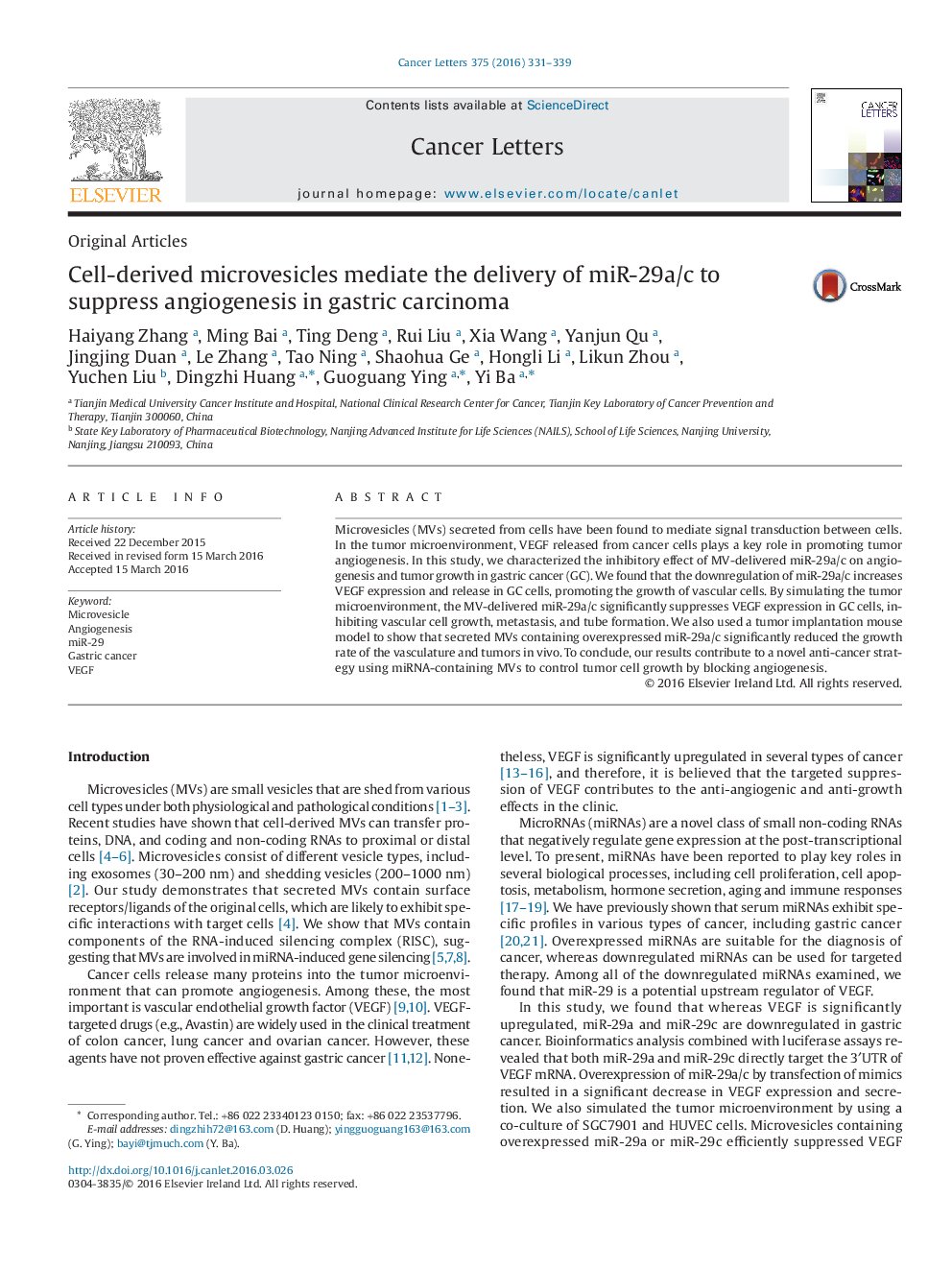| Article ID | Journal | Published Year | Pages | File Type |
|---|---|---|---|---|
| 10899340 | Cancer Letters | 2016 | 9 Pages |
Abstract
Microvesicles (MVs) secreted from cells have been found to mediate signal transduction between cells. In the tumor microenvironment, VEGF released from cancer cells plays a key role in promoting tumor angiogenesis. In this study, we characterized the inhibitory effect of MV-delivered miR-29a/c on angiogenesis and tumor growth in gastric cancer (GC). We found that the downregulation of miR-29a/c increases VEGF expression and release in GC cells, promoting the growth of vascular cells. By simulating the tumor microenvironment, the MV-delivered miR-29a/c significantly suppresses VEGF expression in GC cells, inhibiting vascular cell growth, metastasis, and tube formation. We also used a tumor implantation mouse model to show that secreted MVs containing overexpressed miR-29a/c significantly reduced the growth rate of the vasculature and tumors in vivo. To conclude, our results contribute to a novel anti-cancer strategy using miRNA-containing MVs to control tumor cell growth by blocking angiogenesis.
Related Topics
Life Sciences
Biochemistry, Genetics and Molecular Biology
Cancer Research
Authors
Haiyang Zhang, Ming Bai, Ting Deng, Rui Liu, Xia Wang, Yanjun Qu, Jingjing Duan, Le Zhang, Tao Ning, Shaohua Ge, Hongli Li, Likun Zhou, Yuchen Liu, Dingzhi Huang, Guoguang Ying, Yi Ba,
